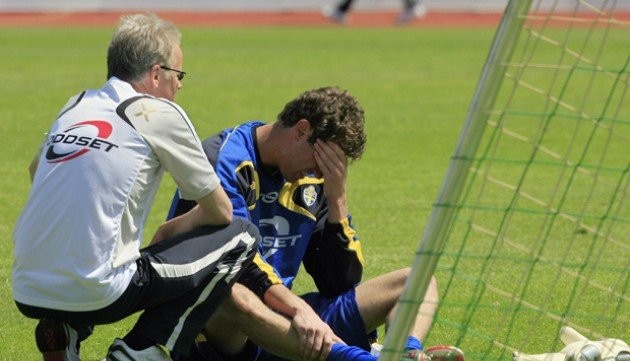In the high-stakes world of football, the mental game is just as crucial as physical ability. Players face immense pressure to perform, which can impact their performance on the field. This is where sports psychologists play a vital role. They work with athletes to enhance mental resilience, focus, and overall performance. This article explores the significance of sports psychologists in football and the various methods they employ to support players.
Understanding Sports Psychology
Sports psychology is a specialized field that focuses on the mental and emotional aspects of athletic performance. It encompasses a range of topics, including motivation, anxiety management, concentration, and team dynamics. Sports psychologists help players develop mental skills that contribute to their success in competitive environments.
Importance of Mental Training
Mental training is essential for football players due to the unique pressures of the sport. Players often face intense scrutiny from fans, coaches, and media, which can lead to stress and anxiety. By addressing these mental challenges, sports psychologists can help players maintain composure during crucial moments, such as penalty kicks or critical match situations.
Key Roles of Sports Psychologists in Football
Sports psychologists perform various functions to support football players. Their expertise is invaluable in shaping a player’s mental approach to the game.
Enhancing Performance
One of the primary roles of sports psychologists is to enhance performance through mental training techniques. They teach players how to visualize success, set realistic goals, and maintain focus during matches. These techniques empower athletes to manage their thoughts and emotions, ultimately improving their on-field performance.
Building Confidence
Confidence is a critical factor in an athlete’s success. Sports psychologists work with players to identify and address self-doubt, helping them build a positive self-image. By fostering a strong sense of confidence, psychologists enable players to take risks and perform at their best, especially in high-pressure situations.
Managing Stress and Anxiety
Football can be a high-pressure environment, leading to stress and anxiety among players. Sports psychologists teach relaxation techniques, such as deep breathing and mindfulness, to help players cope with these pressures. Learning how to manage stress not only improves performance but also contributes to the overall well-being of athletes.
The Mental Game in Training
Mental training is not just a pre-match activity; it is an integral part of a player’s overall training regimen. Sports psychologists collaborate with coaches to incorporate mental skills training into regular practice sessions.
Visualization Techniques
Visualization is a powerful tool used by sports psychologists to enhance performance. Players are guided to mentally rehearse their actions during games, envisioning successful plays and outcomes. This technique helps athletes prepare for various scenarios, increasing their confidence and readiness for competition.
Focus and Concentration Drills
Distractions are a common challenge in football, whether from the crowd, opponents, or personal thoughts. Sports psychologists design focus and concentration drills that help players maintain their attention during matches. By practicing these techniques in training, players learn to block out distractions and stay present in the moment.
Team Dynamics and Cohesion
In addition to working with individual players, sports psychologists play a crucial role in enhancing team dynamics. A cohesive team is more likely to succeed on the field, and psychologists help facilitate positive relationships among teammates.
Communication Skills
Effective communication is vital for a successful football team. Sports psychologists teach players how to communicate openly and honestly with one another, fostering trust and collaboration. Strong communication skills enable teams to work together more effectively, both on and off the pitch.
Conflict Resolution
Conflicts can arise within any team, and sports psychologists help players navigate these challenges. They provide strategies for resolving conflicts and building stronger relationships among teammates. By addressing interpersonal issues, psychologists contribute to a healthier team environment.
The Future of Sports Psychology in Football
As the understanding of sports psychology continues to evolve, its role in football is becoming increasingly important. Clubs are recognizing the value of mental training and are investing in sports psychologists to support their players.
Expanding Accessibility
With the growing awareness of mental health in sports, access to sports psychology services is expanding. More clubs are integrating psychologists into their support staff, ensuring that players receive the mental training they need to excel. This trend reflects a shift toward a more holistic approach to athlete development.
Emphasizing Mental Health Awareness
The conversation around mental health in sports is gaining momentum. Sports psychologists play a key role in promoting mental health awareness among players, coaches, and fans. By advocating for mental well-being, they help reduce the stigma surrounding mental health issues in athletics.
The role of sports psychologists in football is invaluable. They provide essential support to players, helping them navigate the mental challenges of the game. Through mental training, confidence-building, and fostering team dynamics, sports psychologists enhance performance and overall well-being. As the importance of mental health in sports continues to grow, the influence of sports psychologists will undoubtedly play a pivotal role in shaping the future of football. By investing in mental training, clubs can ensure their players are not only physically prepared but also mentally equipped to succeed on the field.
